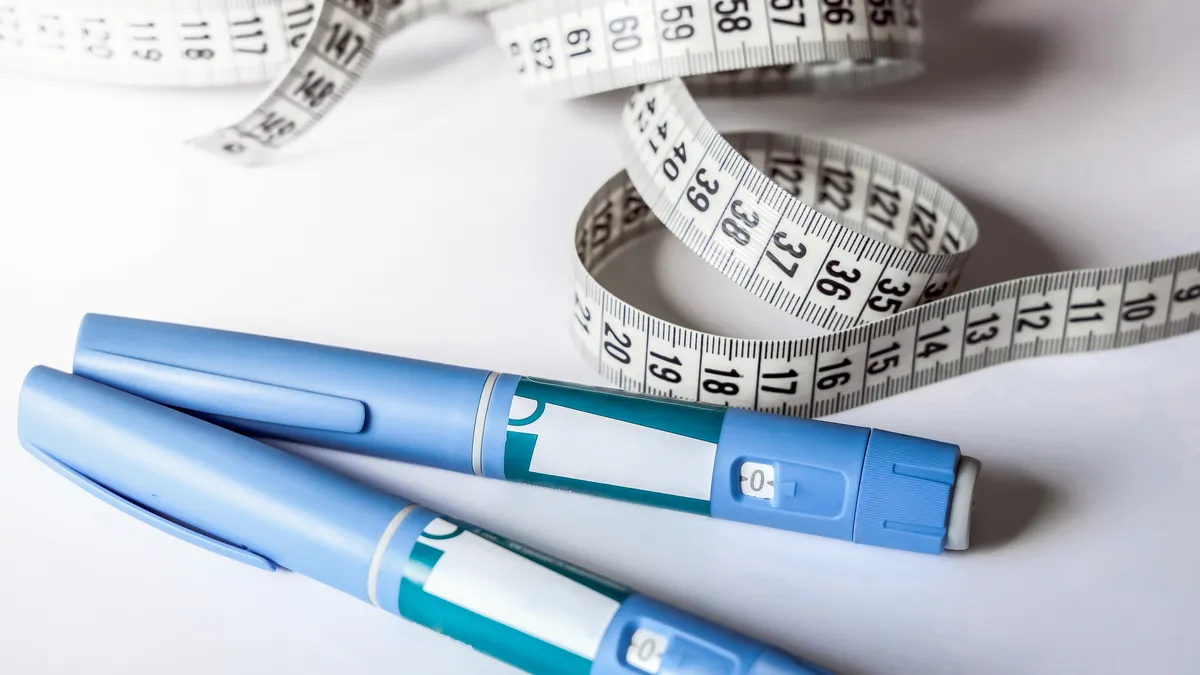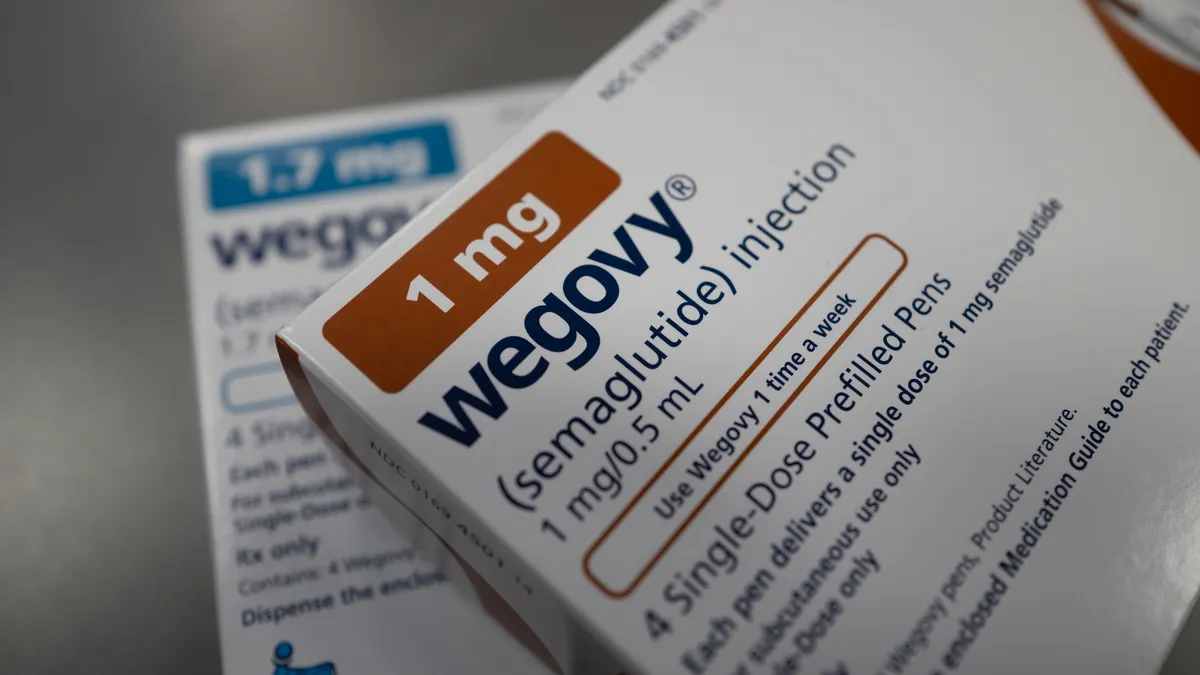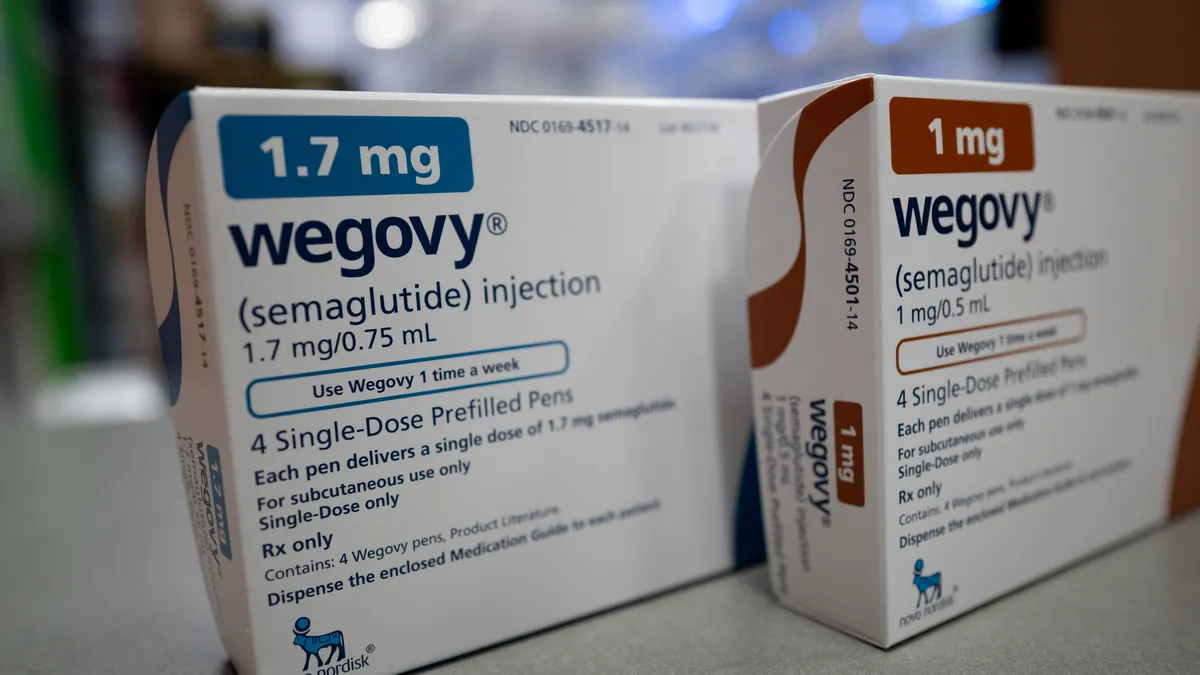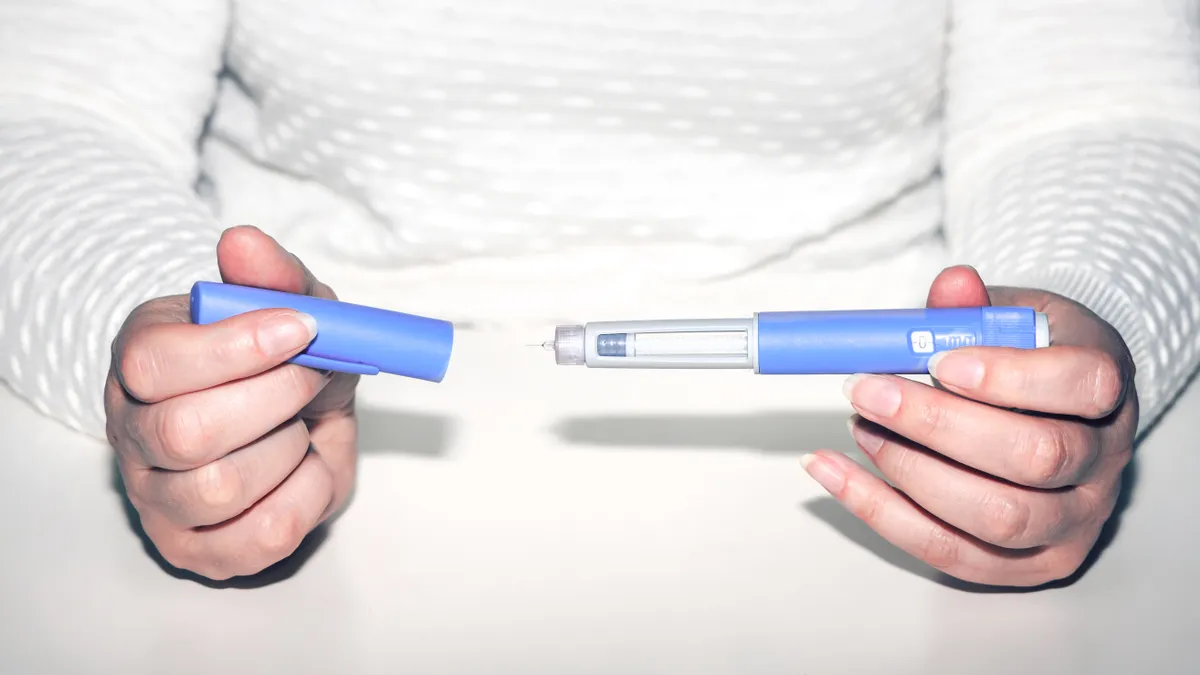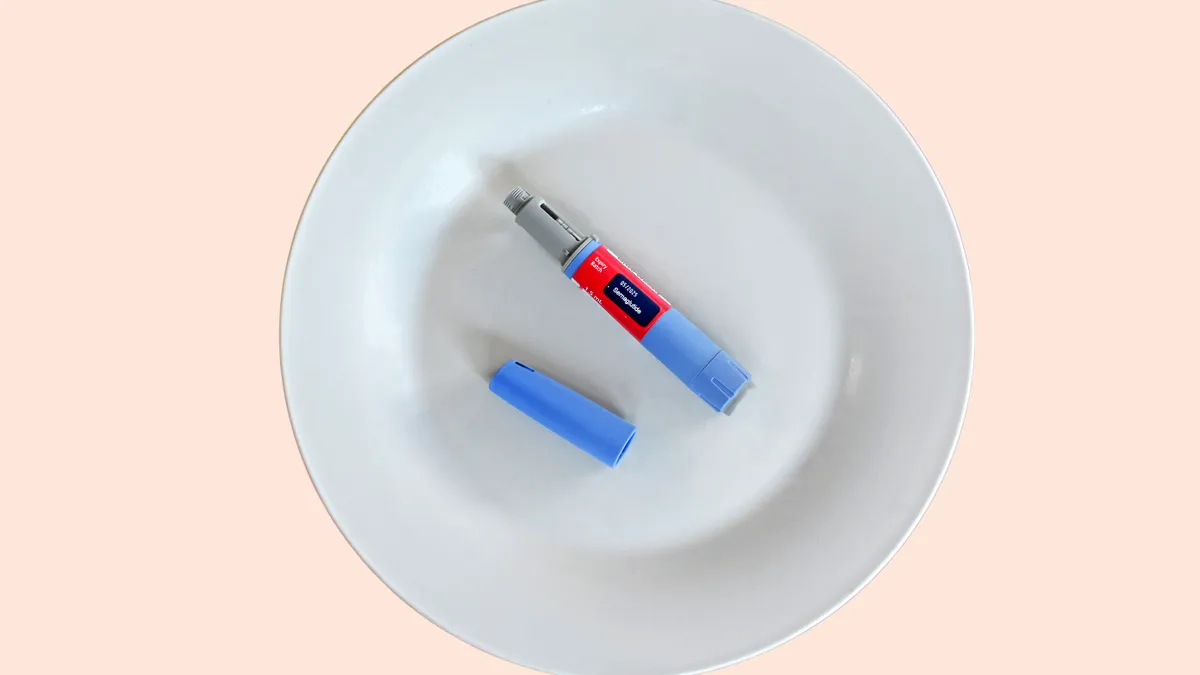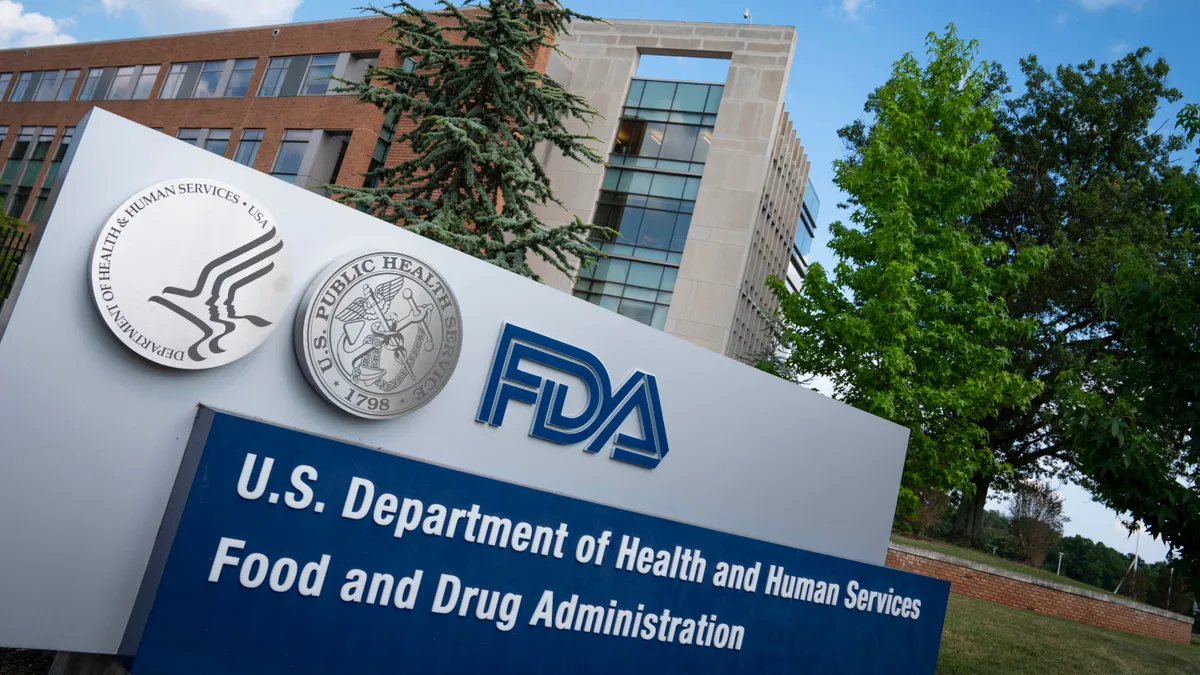Dive Brief:
- Eli Lilly released the results of two new Phase 3 trials of an experimental GLP-1 pill that the company says could become a “foundational treatment” for type 2 diabetes.
- The medicine, orforglipron, succeeded on all primary and key secondary endpoints in the studies of diabetes patients, Lilly said Wednesday. One trial, Achieve-2, compared orforglipron with dapagliflozin, sold by AstraZeneca as Farxiga. The other, Achieve-5, tested orforglipron against a placebo in patients also taking insulin.
- The Indianapolis-based drugmaker plans to submit global regulatory applications for orforglipron in the treatment of type 2 diabetes next year. The company said it will seek approval of the drug as an obesity medication by the end of 2025.
Dive Insight:
Lilly is trying to build on the success of its Mounjaro/Zepbound franchise by offering patients a pill instead of an injection. But the company is trailing behind rival Novo Nordisk in developing an oral alternative, and data released so far has raised some skepticism among investors.
A study released in August showed that orforglipron could help patients lose an average of about 12% of their body weight. Wall Street had been expecting more; Lilly’s injectable drug Zepbound produced weight loss of as much as 21%, and Novo Nordisk has achieved 15% weight loss percentages for both oral and injectable versions of its Wegovy medication.
The results sent Lilly’s shares crashing even as the company emphasized that orforglipron will offer key benefits as a pill that can be taken without regard to food and water. Lilly has also been building an extensive case for the drug’s use in diabetes patients, with a series of studies including the ones released Wednesday.
In both of the new trials, type 2 diabetes patients taking the experimental pill saw a significant reduction in A1C, a measure of blood sugar, and experienced significant weight loss, Lilly said. Researchers also found improvements in cardiovascular risk factors. The most common side effects were gastrointestinal issues that were generally mild to moderate, the company said.
Lilly said the rates of discontinuation among patients were in keeping with previous research. That has been one concern for analysts; some of Lilly’s previous data showed relatively high dropout rates for obesity patients who have plenty of other options to try. In type 2 diabetes, however, orforglipron is set for “robust uptake” in the market, William Blair analyst Andy Hsieh wrote in September.






















